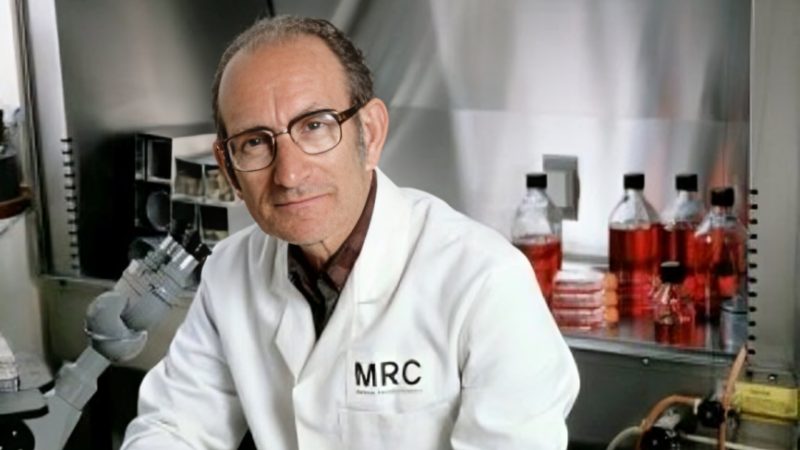César Milstein (8 October 1927 – 24 March 2002) was an Argentine biochemist renowned for his contributions to antibody research.

He shared the 1984 Nobel Prize in Physiology or Medicine with Niels Kaj Jerne and Georges J. F. Köhler for developing the hybridoma technique, a groundbreaking method for producing monoclonal antibodies. This innovation revolutionized the use of antibodies in scientific research and medicine.
Milstein’s research focused on understanding antibody structure and diversity. In 1975, collaborating with Köhler, he developed the hybridoma technique. Leonard Herzenberg later coined the term “hybridoma” during his time in Milstein’s lab.
Milstein’s further work refined monoclonal antibody technology, making them valuable tools for distinguishing cell types and diagnosing various diseases. His collaboration with Claudio Cuello advanced the use of monoclonal antibodies as probes in neurological and other disorders.
Earlier in his career, Milstein explored antibody diversity at the amino acid level and the disulfide bonds that stabilize them, often working alongside his wife, Celia. He later shifted his focus to the mRNA encoding antibodies, providing key insights into their synthesis and the existence of precursor molecules with signal sequences.
National Institute of Arthritis and Musculoskeletal and Skin Diseases (NIAMS) shared a post on LinkedIn about Milstein and his contribution to mAbs production:
“Born in Argentina, César Milstein (1927-2002) is known as ‘the father of modern immunology.’ He was awarded the Nobel Prize in Physiology or Medicine in 1984 for his pioneering work with monoclonal antibodies (mAbs) production.
He helped develop a method for producing large quantities of mAbs, which laid the foundation for modern mAbs treatment for rheumatoid arthritis, lupus, and other autoimmune diseases.”
National Cancer Institute (NCI) shared this post, adding:
“César Milstein received a Nobel Prize in 1984 for developing, with Georges Köhler, a way to produce monoclonal antibodies, which are immune system proteins that are created in the lab.
Today, many monoclonal antibodies are used to treat cancer. These treatments are a type of targeted cancer therapy, which means they are designed to interact with specific targets.
Learn more about how monoclonal antibodies work against cancer.”
